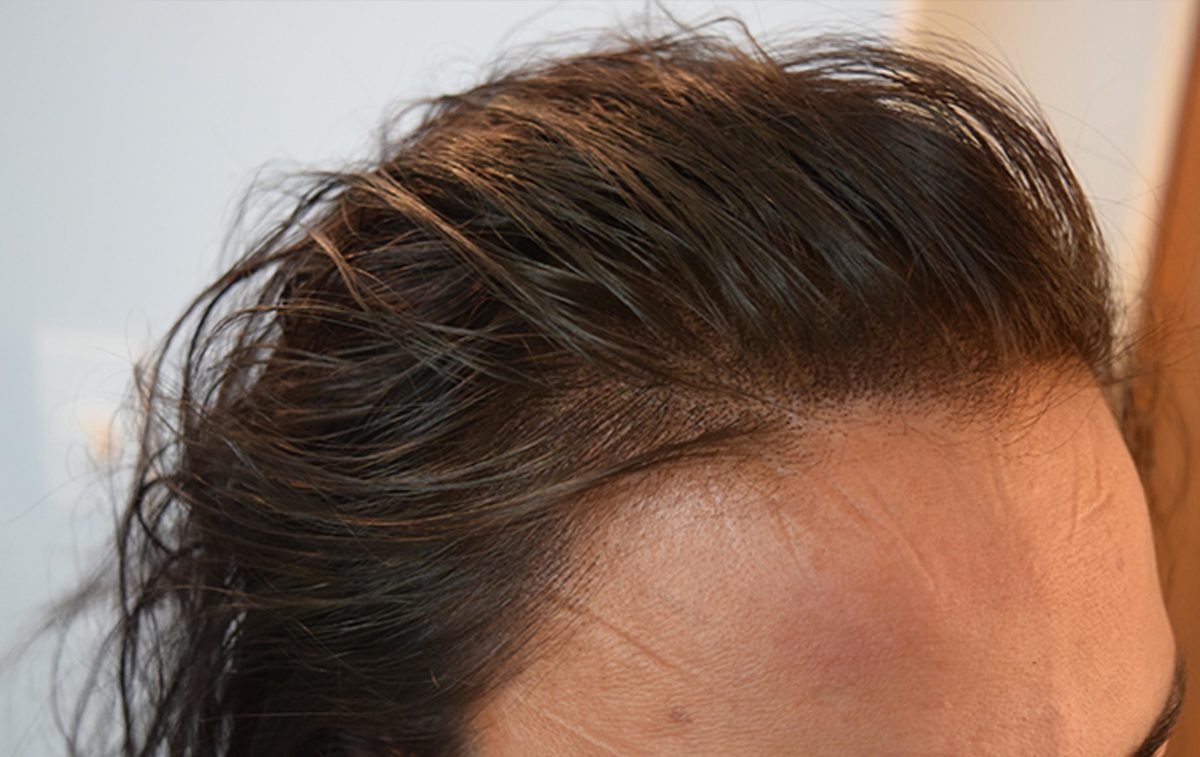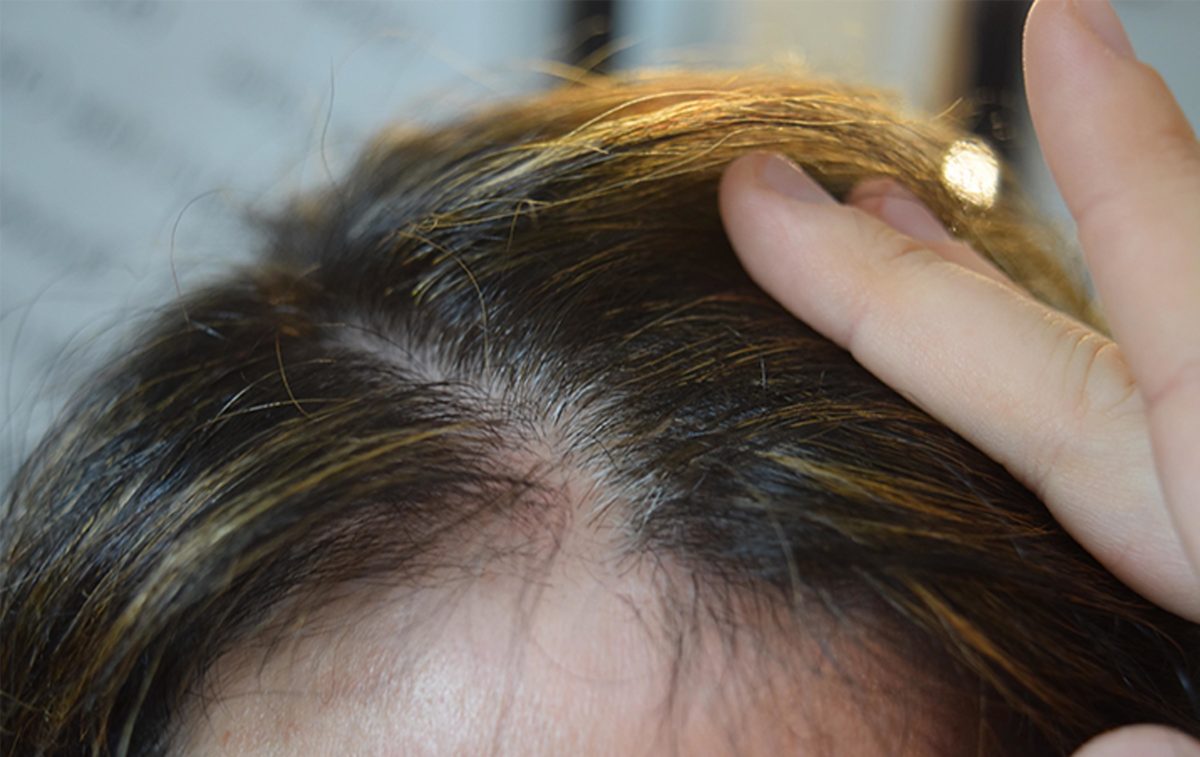Like male pattern thinning, female pattern baldness is a cause for concern for women. Hair seems to be the pride of women. They love to flaunt their hair, which defines their looks and personality. Unfortunately, they are not immune to hair loss. A woman suffering from pattern baldness starts to lose hair right from their partition. Let’s divide the type of pattern thinning into three stages –
- Grade 1 defines the stage when there is a drop in the density of the hair
- Grade 2 exhibits moderately visible empty patches
- Grade 3 is the stage when open spots are clearly obvious
What Causes Female Pattern Baldness
Hormonal imbalance is the primary cause of pattern baldness in men and women. If a female suffers from thyroid, PCOS, PCOD, or estrogen insufficiency, they may experience pattern thinning as well. Some women may start to experience the problem of baldness post-pregnancy. As a result, hair shedding is rapid and the hair cycle is disrupted, causing bald spots.
When hair growth is slow while hair loss is rapid, it may create a condition of diffuse hair loss, which may further become female pattern baldness. As hormones are disturbed, a woman may experience an increase in testosterone production with a drop in estrogen. This may cause DHT formation, which weakens follicles and results in hair fall.
DHT blocks androgen receptors in follicles, causing an altered hair growth cycle and hair miniaturization.
How to Treat Pattern Baldness in Women
There are many hormonal supplements available to set the disturbed hormones right. Many of the supplements block DHT formation so the body can resume its estrogen production. Include DHT-blocking foods that can help stimulate hair growth and keep a check on hair loss.
Other female pattern baldness treatments include:
- Stem cell therapy
- Laser therapy
- Platelet-rich plasma therapy
- Minoxidil, which is the only FDA-approved medicine for hair loss
- Hair transplant
While not all women are comfortable with the idea of plasma or stem cell therapy. Some are averse to laser treatments too. As far as minoxidil is concerned, nothing happens overnight. You must continue with the treatment for a long time. Unfortunately, hair shedding resumes after you stop using the medicine.
A hair transplant can be effective in women that do not respond to other treatments or those who do not need significant cosmetic improvement.
The procedure involves removing tiny plugs of hair from the sites of thick hair growth. The patch of removed hair is transplanted in balding sites. The procedure may cause scarring in donor areas. What’s more, the risk of infection cannot be rejected either since it is a surgical procedure.
Other options
Other treatments for female pattern baldness include hairpieces that can hide hair loss but these aren’t permanent. If you seek a more permanent procedure that gives you a better appearance while hiding the scalp flaws, then you may choose scalp micropigmentation. This is a relatively safer and less expensive procedure than a hair transplant.
Contact the most skilled and experienced scalp artist in Phoenix to get the job done and get your self-esteem back. Connect with DermiMatch SMP professionals and find out if scalp micropigmentation is the right procedure for your female pattern baldness problem.


